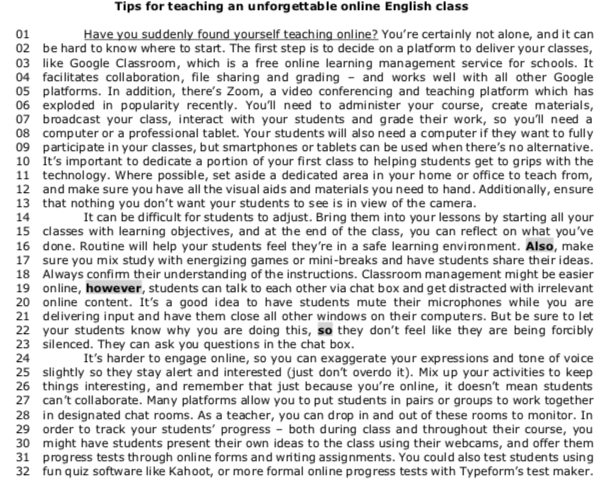Questões de Concurso
Sobre interpretação de texto | reading comprehension em inglês
Foram encontradas 9.631 questões
CRIMINALS HAVE SMALLER BRAIN SIZE, SAYS STUDY
A new study has found that antisocial people are more likely to have smaller areas of their brain. Researchers said criminals' brains had a different structure to the brains of people who followed the law. The study is published in the journal "Lancet Psychiatry". Researchers used data from 672 people born in 1972-73. They looked at records of the people's antisocial behaviour between the ages of seven and 26. At the age of 45, the researchers scanned the people's brains. Eighty of the people had a history of criminal and antisocial behaviour from being early teenagers. Researchers found that the areas of the brain linked to emotions, motivation and behaviour control were smaller in the long-term criminals' brains.
Professor Terrie Moffitt, a co-author of the research, said the research could help doctors understand what is behind long-term antisocial behaviour. She said the antisocial people in the study may have behaved badly because of their brain structure. She said: "They are actually operating under some [disability] at the level of the brain." She added that because of this, we needed to care for these people in a kinder way. Lead author Dr Christina Carlisi said: "Differences in brain structure might make it difficult for people to develop social skills. This may prevent them from engaging in antisocial behaviour. These people could benefit from more support throughout their lives."
Available on: https://breakingnewsenglish.com/2002/200221-brain-size.html Accessed on: March, 20th 2020.
For the question use the poem below:
Eating Poetry
(Mark Strand)
Available at: https://www.poetryfoundation.org/poems/52959/eating-poetry Accessed on December 30th, 2019.
About the poem use TRUE (T) or FALSE (F):
( ) Describes a speaker who is literally eating poetry.
( )The most important aspect to consider in understanding this poem is the metaphor behind the act of eating a poem.
( ) The action of eating poetry is for the poet something that makes him happy.
( ) Strand uses short sentences and highlights one of the most common types of simple English sentences: subject, verb, object.
Respectively, the order is:
“...Australia amid a heatwave...” The underlined word means:
The correct sentences are:

(Avaliable in: https://www.cambridgeenglish.org/blog/12-tips-for-teaching-an-online-english-class/ – text adapted specially for this test).

(Avaliable in: https://www.cambridgeenglish.org/blog/12-tips-for-teaching-an-online-english-class/ – text adapted specially for this test).
Observe the text below and answer the following question.
Approach, method and technique
Approach is the level at which assumptions and beliefs about language and language learning are specified. It describes the nature of the subject matter to be taught.
Method is the level at which theory is put into practice and at which choices are made about the particular skills to be taught, the content to be taught, and the order in which the content will be presented.
A technique is implementational - that which actually takes place in a classroom. It is a particular trick, stratagem, or contrivance used to accomplish an immediate objective. Techniques must be consistent with a method, and therefore in harmony with an approach as well.
(Richards, Jack C., Rodgers, Theodore S. Approaches and methods in language teaching, p.15)
Observe the text below and answer the following question.
Approach, method and technique
Approach is the level at which assumptions and beliefs about language and language learning are specified. It describes the nature of the subject matter to be taught.
Method is the level at which theory is put into practice and at which choices are made about the particular skills to be taught, the content to be taught, and the order in which the content will be presented.
A technique is implementational - that which actually takes place in a classroom. It is a particular trick, stratagem, or contrivance used to accomplish an immediate objective. Techniques must be consistent with a method, and therefore in harmony with an approach as well.
(Richards, Jack C., Rodgers, Theodore S. Approaches and methods in language teaching, p.15)
Observe the text below and answer the following question.
Approach, method and technique
Approach is the level at which assumptions and beliefs about language and language learning are specified. It describes the nature of the subject matter to be taught.
Method is the level at which theory is put into practice and at which choices are made about the particular skills to be taught, the content to be taught, and the order in which the content will be presented.
A technique is implementational - that which actually takes place in a classroom. It is a particular trick, stratagem, or contrivance used to accomplish an immediate objective. Techniques must be consistent with a method, and therefore in harmony with an approach as well.
(Richards, Jack C., Rodgers, Theodore S. Approaches and methods in language teaching, p.15)
